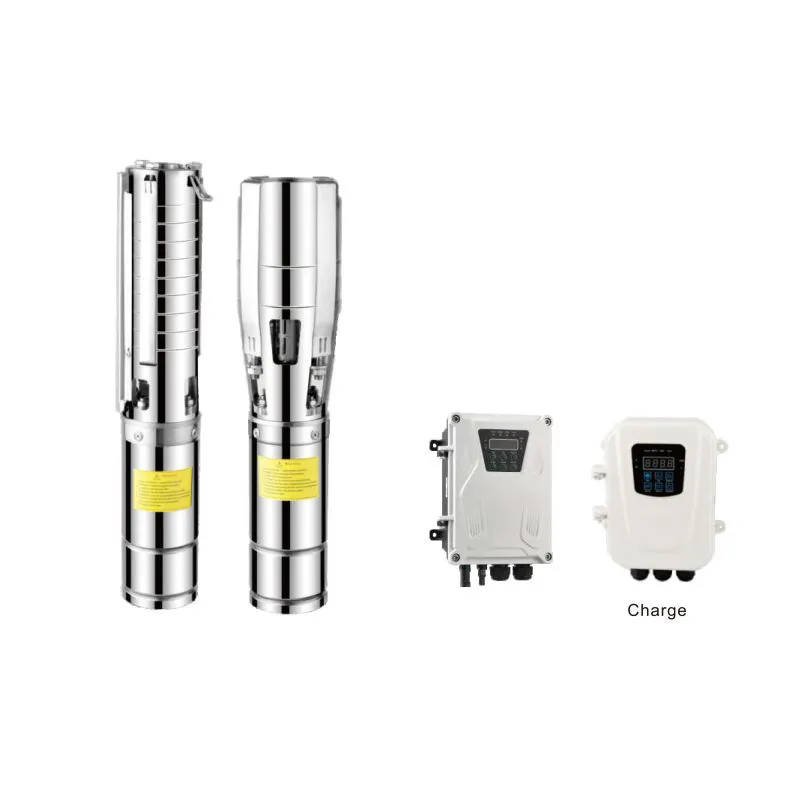Is a Solar Water Pump Set the Solution to Your Water Needs?
2024-11-07
If you’ve ever struggled with high electricity costs or the challenge of getting water to a remote area, you may have considered alternative water pumping solutions. One increasingly popular option is the solar water pump set. But what makes it so effective, and is it the right choice for your needs?
What Is a Solar Water Pump Set?
A solar water pump set is a system that uses energy from the sun to pump water. It typically includes solar panels, a pump, a controller, and sometimes a battery storage system. The solar panels convert sunlight into electrical energy, which powers the pump to draw water from a well, river, or storage tank and distribute it where needed. This setup is commonly used for irrigation, livestock watering, and supplying water to off-grid homes or rural areas.
How Does It Work?
The solar panels are the heart of the system, collecting sunlight and converting it into electricity. This energy is then sent to the controller, which regulates the power supplied to the pump. The controller ensures the pump operates efficiently, even under fluctuating sunlight conditions. During sunny days, the pump can operate at full capacity, while on cloudy days, it may run at a reduced output.
For systems equipped with battery storage, excess energy generated during the day can be stored for use when sunlight is insufficient or during nighttime hours. This ensures a continuous water supply regardless of weather conditions.
What Are the Key Benefits?
1. Energy Savings: One of the biggest advantages of a solar water pump set is the potential for energy savings. Since the pump relies entirely on solar power, there are no ongoing electricity costs. This can result in substantial savings, especially for large-scale agricultural operations or remote water needs.
2. Eco-Friendly: Solar water pumps are a sustainable and environmentally friendly alternative to traditional pumps powered by fossil fuels. By reducing carbon emissions and using renewable energy, they contribute to a cleaner planet and help combat climate change.
3. Low Maintenance: Solar water pump systems generally require minimal maintenance. Since there are no fuel costs and fewer moving parts compared to traditional generators, upkeep is straightforward and affordable. Occasional cleaning of the solar panels and checking the pump system for clogs or wear are usually sufficient.
4. Ease of Installation: Setting up a solar water pump set is relatively simple and doesn’t require complex infrastructure. This makes it ideal for rural or off-grid locations where access to electricity is limited. Additionally, the system can be easily relocated if needed.
Where Can You Use a Solar Water Pump Set?
These systems are incredibly versatile and can be used in various settings:
- Agricultural Irrigation: Farmers can use solar water pumps to irrigate crops efficiently, reducing the dependency on grid power and lowering operational costs. Drip irrigation and sprinkler systems are especially well-suited to work with solar pumps.
- Livestock Watering: For ranchers, a solar pump set provides a reliable water source for livestock, even in remote grazing areas where electricity is not available.
- Domestic Use: Homes that are off-grid or in areas with unreliable electricity can use solar water pumps for drinking water, household chores, or filling storage tanks.
- Community Water Projects: In developing regions, solar water pump sets are often used to provide clean water to communities that lack access to reliable water sources.
Are There Different Types of Solar Water Pumps?
Yes, solar water pumps come in various types, each suited to different applications:
1. Submersible Pumps: These are designed to be placed underwater, typically in wells or boreholes. They are ideal for pumping water from deep sources and are widely used in agriculture and rural water supply systems.
2. Surface Pumps: These pumps are installed above the water source and are suitable for shallow wells, ponds, or rivers. They work well for applications where the water doesn’t need to be lifted from great depths.
3. DC vs. AC Pumps: Solar water pumps can operate on direct current (DC) or alternating current (AC). DC pumps are more efficient with solar energy, while AC pumps may require an inverter to convert the solar energy into usable power.
What Should You Consider Before Buying?
When choosing a solar water pump set, several factors should be taken into account:
- Water Demand: Assess your daily water needs. This will help you determine the size of the pump and the number of solar panels required.
- Depth and Distance: The depth of your water source and the distance the water needs to travel are critical factors. Deeper wells will require more powerful pumps, while long-distance pumping may need additional pressure systems.
- Solar Irradiance: The amount of sunlight your location receives will affect the performance of the pump. Areas with abundant sunlight will benefit more from solar water pump systems.
- Budget: While the initial cost of a solar water pump set may be higher than traditional pumps, the long-term savings in energy costs and maintenance can make it a cost-effective investment. Be sure to factor in both the upfront expense and the long-term benefits.
Are There Any Drawbacks?
While solar water pumps offer numerous advantages, there are some limitations to consider:
- Initial Investment: The upfront cost can be a barrier for some users. However, the investment typically pays off over time through energy savings.
- Weather Dependency: The performance of a solar pump is directly influenced by sunlight. In regions with extended periods of cloudy weather, the system may not operate at full capacity unless a battery backup is included.
- Water Availability: For areas where water sources are inconsistent or seasonal, relying solely on solar power may not be practical. In such cases, hybrid systems that can switch to grid power may be more suitable.
How Can a Solar Water Pump Set Benefit You?
The benefits of a solar water pump set are especially evident for those living in remote areas or running large agricultural operations. By harnessing the power of the sun, you can enjoy a reliable and cost-effective water supply while reducing your environmental footprint. The simplicity, efficiency, and long-term savings make it an attractive option for many.
So, is a solar water pump set the solution you’ve been searching for? Whether you’re looking to save on energy costs, enhance water access in a remote location, or support a sustainable lifestyle, this technology offers a practical and eco-friendly way to meet your water needs. Are you ready to tap into the power of the sun?



